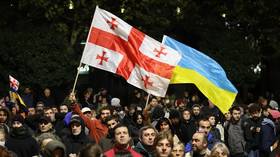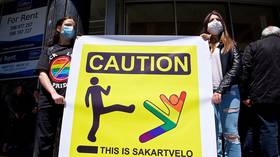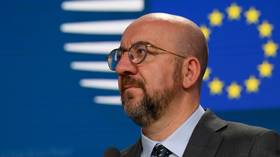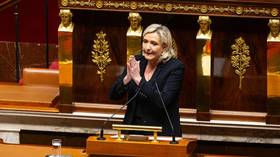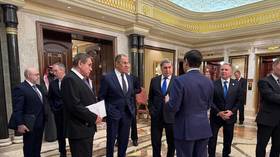EU candidate state suspends accession talks
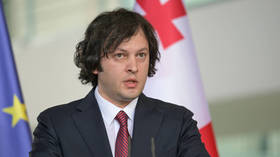
Georgia has decided to freeze accession talks with the EU until 2028, when it expects to be ready for further steps, Prime Minister Irakli Kobakhidze told a news briefing on Thursday.
Tbilisi will continue to fulfil its existing obligations under the Association Agenda with the EU, but will do so on its own as it wants to be treated as an equal partner in relations with Brussels, he said.
The decision was announced following a government meeting with the Georgian Dream Party, which retained its majority in parliament following the October election.
“We are a self-respecting nation with a great history… it is absolutely unacceptable for us to consider integration into the European Union as a favor that the European Union should give us,” Kobakhidze said.
Georgia will still strive to join the EU in 2030, the prime minister said. Tbilisi expects to be “economically prepared” to enter the negotiations with Brussels by 2028, he explained.
The country will continue to abide by its Free Trade Agreement with the EU, and expects to have fulfilled more than 90% its obligations under the Association Agenda by 2028, Kobakhidze added.
Georgia seeks to rely on its own resources while continuing on its EU path, and will not accept any EU financial aid until 2028, the prime minister stated.
“We will continue our march towards the European Union, but we will not allow anyone to leave us in a state of constant blackmail and manipulation, which is… offensive to our country and society,” he said.
The South Caucasus nation has for years aspired to join the European Union. Relations between Tbilisi and Brussels nevertheless remain strained due to several laws which have been recently adopted by Georgia. One of them is the ‘foreign agents’ law adopted in May, which requires entities and individuals that receive more than 20% of their funding from abroad to register as “promoting the interests of a foreign power.”
Another is a ban LGBTQ propaganda. Brussels had previously repeatedly warned that the legislation could get in the way of the country’s EU integration. Earlier this month, the Georgian Dream party’s executive secretary, Mamuka Mdinaradze, stated that the nation would “never repeal the law,” even if it delays accession to the bloc for “two or three years.”
Relations between Georgia and the EU have soured in the wake of the October elections. The Georgian Dream party, which seeks to establish pragmatic relations with all the country’s neighbors, including Russia, emerged victorious with nearly 54% of the vote. The pro-Western opposition parties, as well as the nation’s French-born president, Salome Zourabichvili, have refused to recognize the results.
The US and the EU also promptly expressed concerns over alleged irregularities supposedly observed during the vote. European Council President Charles Michel called on the Georgian leadership to “demonstrate its firm commitment to the country’s EU path” when he commented on the issue at that time. OSCE observers nevertheless “positively assessed the elections” and found no systemic voting issues.
On Thursday, Kobakhidze stated that Georgia remained committed to “traditional European values” but wants its relations with the EU to be equal.
“We must clearly show the relevant European politicians and bureaucrats, who are completely devoid of European values, that they should not talk to Georgia with blackmail and insults, but with dignity,” a statement released by the prime minister said, adding that the decision taken by Tbilisi would help Brussels avoid “reputational damage” in Georgia and help “heal” the relations between the South Caucasian nation and the bloc.
“Georgia will become a member state of the European Union only with peace, dignity and prosperity,” the statement said, adding that the nation has no plans to join the bloc “begging and standing on one foot.”
